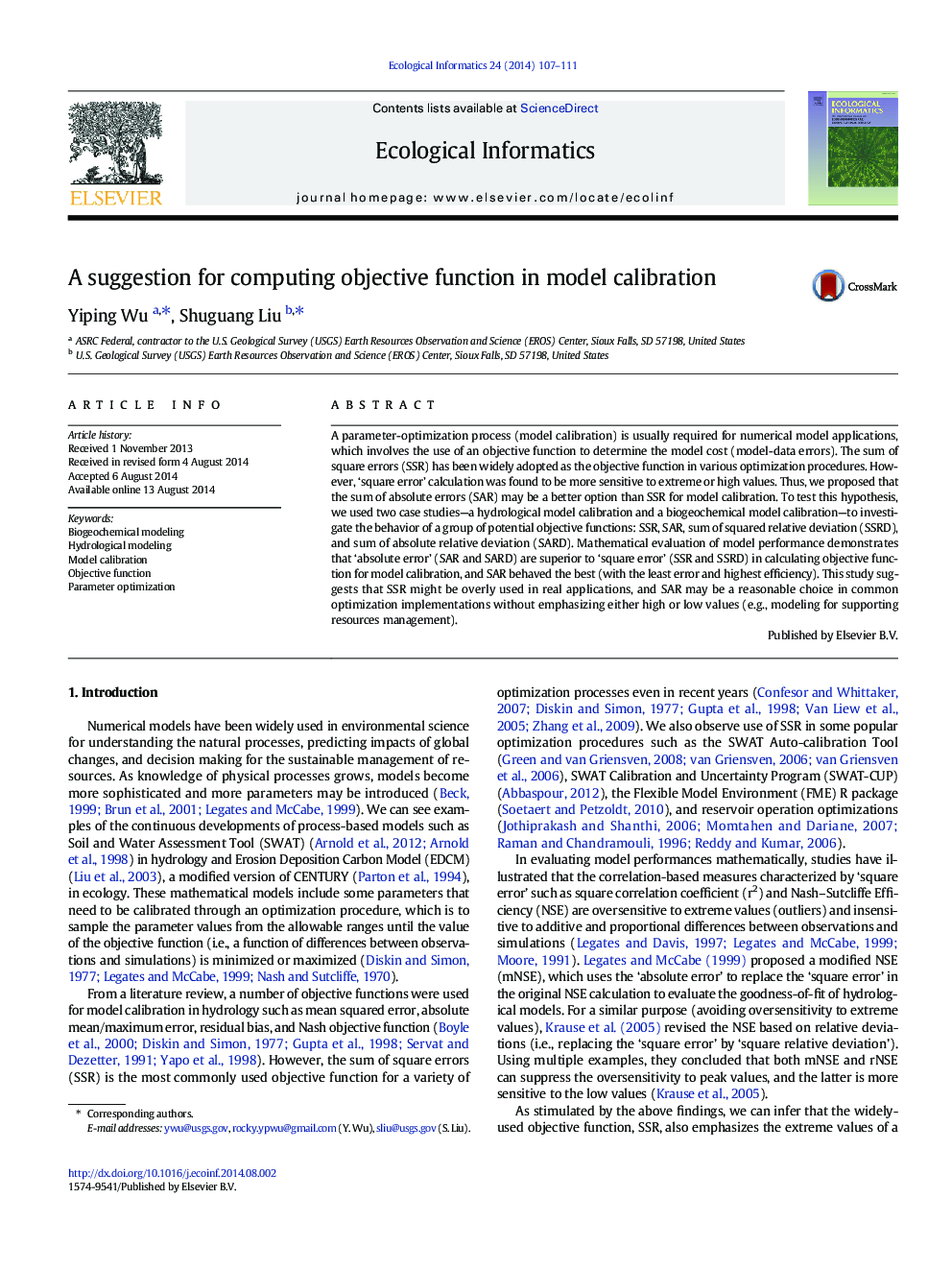| کد مقاله | کد نشریه | سال انتشار | مقاله انگلیسی | نسخه تمام متن |
|---|---|---|---|---|
| 6295899 | 1617208 | 2014 | 5 صفحه PDF | دانلود رایگان |
- A group of potential objective functions for parameter optimization was evaluated.
- Objective functions involving absolute errors showed a better performance.
- Absolute errors instead of square errors are suggested in common optimizations.
A parameter-optimization process (model calibration) is usually required for numerical model applications, which involves the use of an objective function to determine the model cost (model-data errors). The sum of square errors (SSR) has been widely adopted as the objective function in various optimization procedures. However, 'square error' calculation was found to be more sensitive to extreme or high values. Thus, we proposed that the sum of absolute errors (SAR) may be a better option than SSR for model calibration. To test this hypothesis, we used two case studies-a hydrological model calibration and a biogeochemical model calibration-to investigate the behavior of a group of potential objective functions: SSR, SAR, sum of squared relative deviation (SSRD), and sum of absolute relative deviation (SARD). Mathematical evaluation of model performance demonstrates that 'absolute error' (SAR and SARD) are superior to 'square error' (SSR and SSRD) in calculating objective function for model calibration, and SAR behaved the best (with the least error and highest efficiency). This study suggests that SSR might be overly used in real applications, and SAR may be a reasonable choice in common optimization implementations without emphasizing either high or low values (e.g., modeling for supporting resources management).
Journal: Ecological Informatics - Volume 24, November 2014, Pages 107-111
